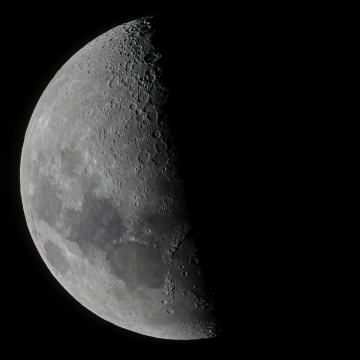The fascination with extraterrestrial life has captured the human imagination for centuries. From ancient myths and legends to modern science, the possibility that we are not alone in the universe has inspired countless stories, investigations, and debates. This article explores the history of belief in extraterrestrials, the scientific search for life beyond Earth, and the myths and realities surrounding this fascinating topic.
History of Belief in Extraterrestrials.
Antiquity and Middle Ages.
The first human cultures already contemplated the possibility that life existed beyond our world. In ancient Greece, philosophers such as Epicurus and Democritus speculated about the existence of other inhabited worlds. In the Middle Ages, thinking about extraterrestrials was largely sidelined by Christian theology, which considered Earth to be the center of the universe.
Renaissance and 19th century.
During the Renaissance, the discovery of new continents and the advancement of astronomy revived interest in life on other planets. Giordano Bruno, a 16th-century Italian philosopher, postulated that stars were distant suns with their own planets and possibly life. In the 19th century, the advent of the telescope allowed astronomers to observe Mars in greater detail, leading to speculation about the existence of canals and, therefore, Martian civilizations.
20th Century: The Modern Era.
The 20th century marked a turning point in the search for extraterrestrial life. The invention of radio and the advancement of astronomy allowed scientists to explore the universe in new ways. In 1960, Frank Drake, an American astronomer, carried out Project Ozma, the first serious attempt to detect radio signals from extraterrestrial civilizations. This effort marked the beginning of the SETI (Search for Extraterrestrial Intelligence) program.
The Scientific Search for Extraterrestrial Life.
Exploration of the Solar System.
The first scientific efforts to find extraterrestrial life focused on our solar system. Mars has been a key target due to its relative proximity and evidence of water on its surface. NASA's Viking missions in the 1970s conducted experiments to detect signs of microbial life, but the results were inconclusive. In recent years, rovers like Curiosity and Perseverance have continued to explore the Red Planet in search of evidence of past or present life.
Exoplanets and the Habitable Zone.
With the discovery of exoplanets (planets orbiting stars outside our solar system) in the 1990s, the search for extraterrestrial life expanded significantly. The Kepler space telescope, launched in 2009, discovered thousands of exoplanets, some of which are in the "habitable zone" of their stars, where conditions could be suitable for the existence of liquid water and, therefore, life.
Astrobiology and Microbial Life.
Astrobiology is an interdisciplinary field that studies the possibility of life in the universe. Scientists investigate extreme environments on Earth, such as the deep ocean and hydrothermal vents, to understand how life could exist under similar conditions on other worlds. Microbial life, resistant to extreme conditions, is considered one of the most probable forms of extraterrestrial life.
Myths and Facts about Extraterrestrials.
Sightings and Abductions.
UFO (unidentified flying objects) sightings and stories of alien abductions have been reported around the world. While some firmly believe in these experiences, most scientists are skeptical. UFO sightings often have more prosaic explanations, such as airplanes, atmospheric phenomena, or optical illusions. Abductions, on the other hand, can be explained by psychological factors such as REM sleep and hypnagogic hallucinations.
Area 51 and Conspiracies.
Area 51, a military base in Nevada, has been the epicenter of conspiracy theories about aliens. The United States government is rumored to have hidden evidence of extraterrestrial contacts and performed autopsies on alien beings. Although Area 51 is real and has been used for secret aircraft testing, there is no verifiable evidence to support these conspiracy theories.
Popular culture.
Popular culture has fueled our fascination with aliens. From HG Wells' "War of the Worlds" to Steven Spielberg's "ET the Extra-Terrestrial," stories about alien encounters have captured the public's imagination. These depictions vary widely, from hostile invaders to benevolent, technologically advanced beings.
The Importance of the Search for Extraterrestrial Life.
Scientific Implications.
Discovering extraterrestrial life would have profound scientific implications. It would confirm that life is not unique to Earth and could provide crucial information about how life originated and how it evolves under different conditions. This could influence fields such as biology, chemistry and physics.
Philosophical and Cultural Impact.
The discovery of extraterrestrial life would also have a significant impact on our view of humanity's place in the universe. It would question many religious and philosophical beliefs about the creation and purpose of life. Additionally, it could foster a sense of global unity, seeing us as a single species in a vast cosmos.
Exploration and Technology.
The search for extraterrestrial life drives space exploration and the development of new technologies. Missions like the James Webb Space Telescope, expected to launch in the coming years, are designed to explore the atmospheres of exoplanets in search of biosignatures, chemical signs that could indicate the presence of life.
The Future of the Search for Extraterrestrial Life.
New Missions and Technologies.
The next decade promises exciting advances in the search for extraterrestrial life. NASA's Europa Clipper mission, scheduled to launch in the 2020s, will explore Jupiter's moon Europa, which is believed to have a subsurface ocean that could support life. Additionally, the next generation of telescopes, such as the Extremely Large Telescope (ELT) in Chile, will allow astronomers to study exoplanets in unprecedented detail.
International Collaboration.
The search for extraterrestrial life is a global effort. Collaboration between space agencies, universities and research institutions around the world is crucial to share data, resources and knowledge. Initiatives such as Breakthrough Listen, funded by entrepreneur Yuri Milner, search for signs of intelligent life in the universe and represent an international collaboration in the search for answers.
Ethics and Preparation for Contact.
If we ever detect signs of intelligent life, we would face ethical and practical challenges. The scientific community has developed protocols for detecting and announcing extraterrestrial life, but there are questions about how to communicate and what implications this contact would have for humanity. How should we handle this knowledge? Should we try to communicate or wait?
The search for extraterrestrial life is one of the most exciting and challenging frontiers of modern science. Throughout history, myths and speculation have coexisted with serious research and scientific discoveries. Although we have not yet found conclusive evidence of life beyond Earth, each advance in technology and knowledge brings us one step closer to answering one of humanity's most fundamental questions: Are we alone in the universe? The search for extraterrestrial life not only teaches us about other worlds, but also about ourselves, our innate curiosity, and our ability to explore the unknown.






